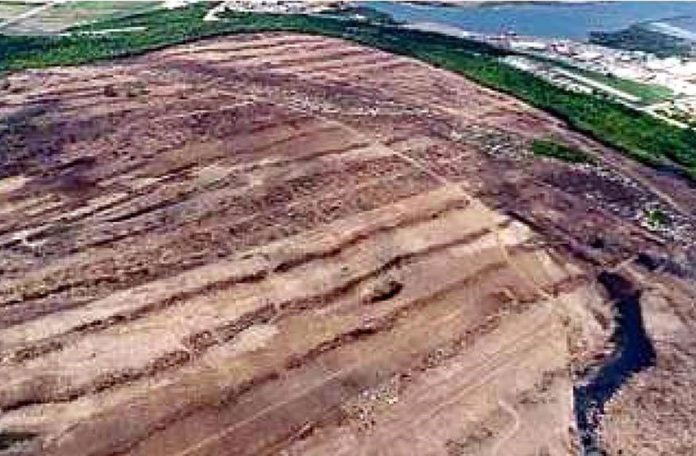Mexico’s energy sector watchdog has ordered that preparatory work on the Tabasco site where a new oil refinery is to be built must stop after mangroves were allegedly cleared without environmental authorization.
The Agency for Safety, Energy and the Environment (ASEA) directed the company Sistemas Empresariales del Golfo (SEG) to immediately cease all activities that alter the condition of the site, which is located on the Gulf of Mexico coast at Dos Bocas.
The Mexican Center for Environmental Law (Cemda) filed complaints last month when both ASEA and the federal Environmental Protection Agency (Profepa) claimed that neither environmental authorization nor permission to change the land use of the site had been granted before work began.
The National Commission for the Knowledge and Use of Biodiversity (Conabio) confirmed the presence of mangroves on the site before the preparatory work took place.
After a December 4 inspection of the site where President López Obrador says a US $8-billion refinery will be built, ASEA set a timeframe of 30 days within which SEG must conduct a study to assess the environmental damage caused.
The watchdog also directed the company to show, within a period of 60 days, that it had acquired the necessary authorization to complete the work.
Cemda president Gustavo Alanís said the orders by ASEA are proof that the federal energy secretary is lying when she says that environmental impact studies have already been carried out and that permits have been granted.
“Rocío Nahle is disregarding the truth, she’s grabbing other supposed [environmental] impact authorizations but they have nothing to do with the construction of the refinery,” he said.
“If they [the federal government] want to do the refinery project, they have to comply with the damage study that ASEA is asking for and pay compensation for damages,” Alanís added.
The Mexican Environmental Impact Academy (AMIA) also said that there are inconsistencies in Nahle’s claims.
“Nahle says that the permits were issued by the state and municipal governments when they should have been issued by Semarnat [the federal Environment Secretariat],” the non-governmental organization said in a statement.
The academy added that environmental impact authorizations and a land use change permit that were granted in 2007 for oil wells to be installed on the site are not transferable.
López Obrador has pledged that the new refinery, which would be the nation’s seventh, will help Mexico to become self-sufficient in energy and boost the economy of southeastern states.
